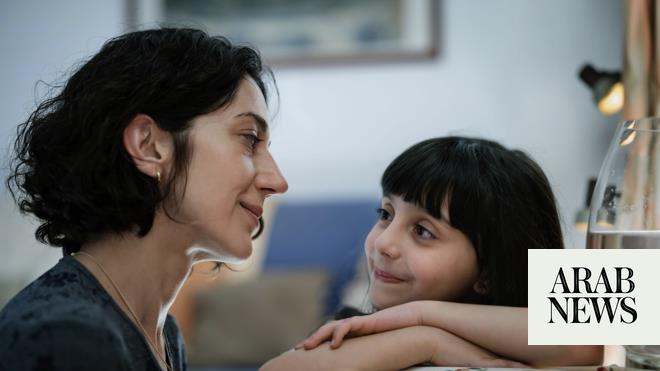
he literary exploration of sexual consent is nothing new, but the change in attitudes that allowed #MeToo to flourish has galvanised a new reckoning. The sexual abuse of children in the past is the razor-sharp tip of a huge iceberg that has often gone unnoticed and was mostly submerged. People who hardly knew they were victims are now telling their stories and, more significantly, their accusations are being listened to. France has recently been shaken by Vanessa Springora’s Consent, which describes her relationship in the 1980s with the prominent author Gabriel Matzneff. She was 14, he was 36 years older, but in the past, nobody seemed to mind when he declared and even published books about his sexual predilection for underage girls and boys.
In Kate Elizabeth Russell’s powerful debut novel, Vanessa Wyes is 15 when she becomes involved with a teacher at her Maine boarding school. At 42, Jacob Strane is neither young nor attractive, but Vanessa is only too willing to be pulled into what she believes is first love. Russell cleverly lures us inside the labyrinth of the teenage mind – hot with hormonal turmoil, pushing boundaries, craving admiration, breaking rules and obsessing about sex. Vanessa has never kissed a boy, but she welcomes the advances of her English teacher. Strane begins by touching her knee under the desk in class, progresses to furtive kisses and then they go to bed. “I’m going to ruin you,” he says, as if tormented. He praises her writing and quotes Nabokov – “My Dark Vanessa” comes from Pale Fire. He also gives her Lolita, which becomes such an obsession that she later confuses her own memories with those of “Lo and Humbert”.
The novel opens in 2017 when Vanessa is 32 and Strane has been accused of sexual abuse by another former pupil. Though Vanessa is still unable to admit that the relationship was harmful, it is clear that the fallout has devastated her subsequent life. Her early verve and literary promise remain unfulfilled, she has a dull job at a hotel desk and props herself up with drink, drugs and casual encounters with unappetising older men. Worse, she remains fixated on her abuser. They sometimes meet or have phone sex, when he whispers how wonderful she was as a teenager – “the magic age that Strane taught me to mythologise”.
Written in the first person from Vanessa’s point of view, the novel switches back and forth between 2017 and the years when she was a schoolgirl and then a college student. Strane’s accuser wants the older Vanessa to support the case and admit what happened to her, but she refuses. “I wasn’t abused, not like that,” she believes. Not “raped raped”. She considers the notion that Strane groomed her, but “all I can think of is the lovely warm feeling I’d get when he stroked my hair”.
Unless it is humorous, bad sex can be painful to read; when a schoolgirl gives forensic details about her repulsive schoolteacher, it is suitably excruciating. And Russell does not tiptoe around the subject. “You’re in charge here, Vanessa. You decide what we do,” Strane lies. He has bought her strawberry-patterned pyjamas and later requests that she call him Daddy. The author skilfully reveals the contradictions of a teenager who can be simultaneously sexually mature and extremely vulnerable, highly intelligent and incapable of protecting herself.
Stephen King called this book “a package of dynamite”, and it is. The writing is dark, shocking, occasionally nauseating and will rightly be labelled “brave”. Actually, you have to be pretty brave to read it. It is hard to witness the repeated rape of a girl who is filled with longing and desire for a monstrous man. Strane (he is never Jacob) makes Vanessa complicit: calling her “the same as me. Separate from others, craving dark things”. Vanessa is a classic victim who protects her abuser, but even as a 15-year-old, she recognises her perverse potency as an illegal object of desire. “Jailbait means having the power to turn a man into a criminal with just one touch,” she writes in a notebook.
This fast-paced, intelligent novel encapsulates the current zeitgeist in which earlier sexual mores are being re-evaluated and clearer boundaries laid down. It also shows how social media play a vital role in uniting survivors and advocating justice. Ironically, Russell herself experienced the hurtful side of social media after Mexican-American writer Wendy Ortiz, who had published a memoir about being groomed by a teacher, wrote on Twitter that “in an industry that is continually taken to task for being extremely white ... here is a seven-figure book deal for a fiction book that is being marketed similarly to my book”. The subsequent storm led Russell to confirm that the novel was inspired by her own teenage experiences; but whatever the back story, My Dark Vanessa’s greatest achievement is its clear-sighted exploration of the ambiguities inherent in abusive relationships. Love is never the justification for harm.
• Sofka Zinovieff’s novel Putney is published by Bloomsbury. My Dark Vanessa by Kate Elizabeth Russell is published by HarperCollins (£12.99). To order a copy go to guardianbookshop.com. Free UK p&p on online orders over £15.












